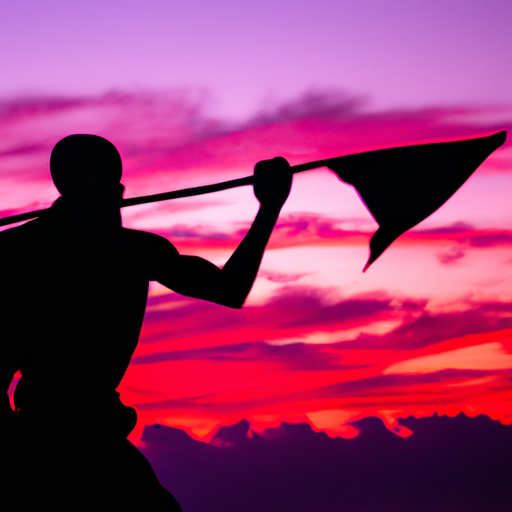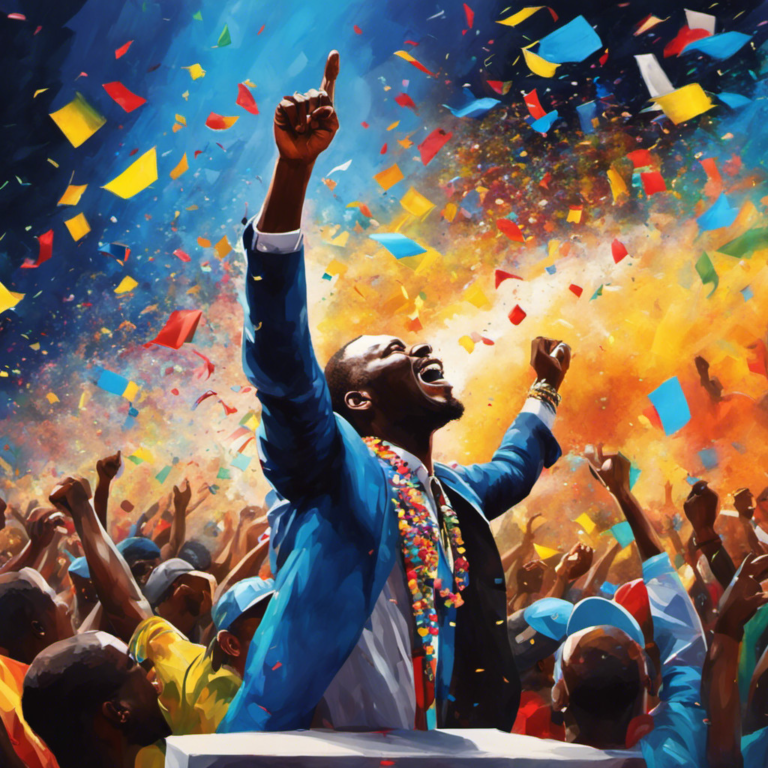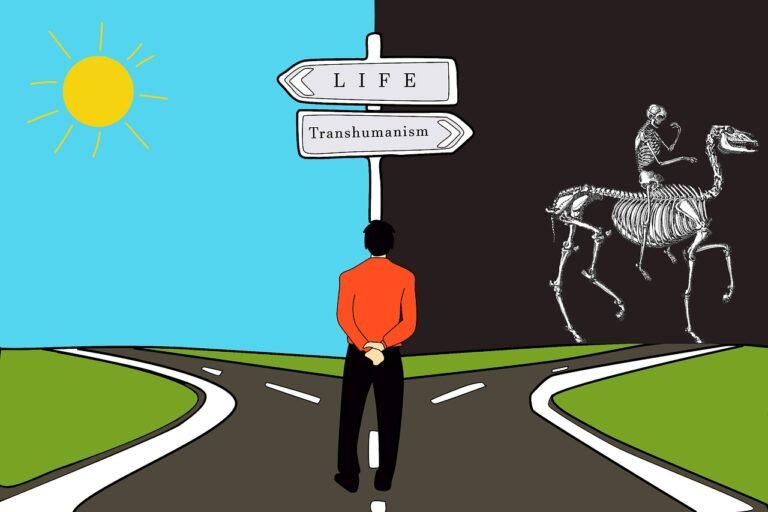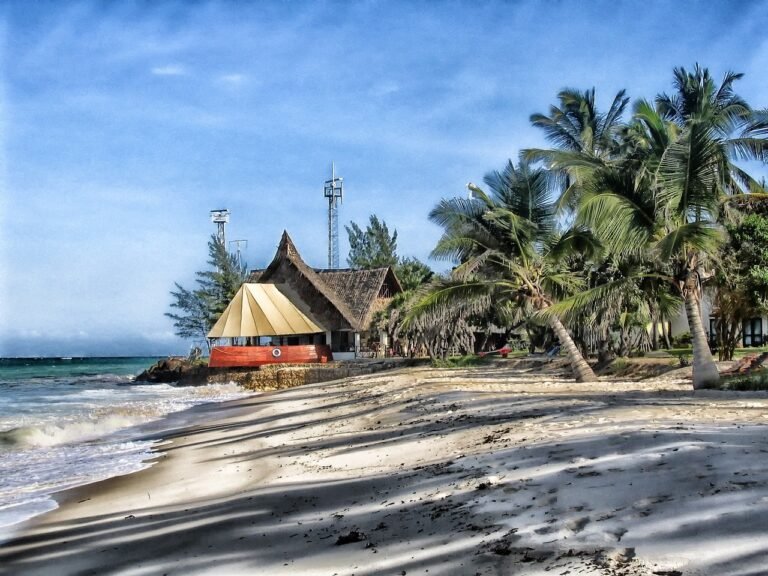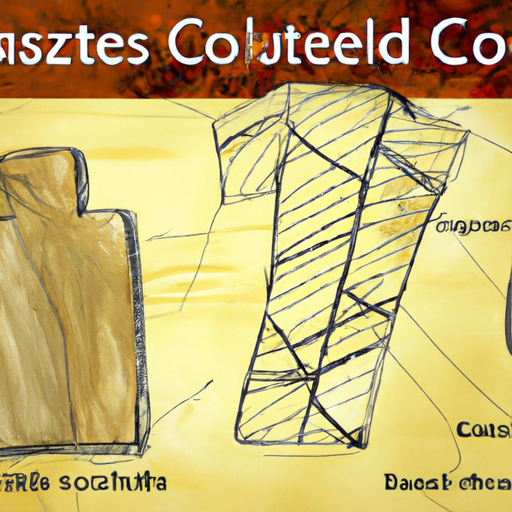Who Was Jomo Kenyatta, And What Was His Role In Kenya’s Independence?
In the article “Who Was Jomo Kenyatta, And What Was His Role In Kenya’s Independence?” we explore the fascinating life and influential contributions of Jomo Kenyatta towards Kenya’s freedom. Discover the captivating story of this visionary leader as we delve into his journey from an activist fighting for rights to becoming the country’s first president. Uncover the pivotal role he played in shaping Kenya’s history and his lasting impact on the nation. Join us as we celebrate the life and legacy of Jomo Kenyatta, a true champion of independence.
Early Life and Education
Background and Birth
Jomo Kenyatta, born as Kamau wa Ngengi, was a prominent Kenyan anti-colonial activist and politician who played a crucial role in leading Kenya to independence from British colonial rule. He was born in 1897 in Gatundu, a small village in British East Africa (present-day Kenya). His family belonged to the Kikuyu ethnic group, one of the largest tribes in Kenya. Growing up in a traditional Kikuyu community, Kenyatta was exposed to the rich cultural heritage and customs of his people, which later shaped his vision for a united and independent Kenya.
Education in Kenya
Kenyatta’s quest for knowledge led him to pursue education at a young age. He attended mission schools, where he mastered English, Swahili, and other subjects. His exceptional academic performance earned him a scholarship to study at the prestigious Alliance High School in Nairobi. At Alliance, Kenyatta thrived academically and socially, demonstrating his leadership skills and passion for social justice issues.
Studying in England
In 1929, Kenyatta left Kenya for England to further his education. He enrolled at the prestigious London School of Economics (LSE) and became one of the first indigenous Africans to study at a British university. His time at LSE exposed him to the ideas of socialism, pan-Africanism, and anti-colonialism, which deeply influenced his political ideology. Kenyatta became an active member of various African and anti-colonial organizations, honing his critical thinking and leadership abilities.
Political Activism
Return to Kenya
After completing his studies, Kenyatta returned to Kenya in 1946 with a newfound dedication to fight for the rights and liberation of his people. He became involved in grassroots organizing, advocating for land rights, African representation, and an end to British colonial rule. Kenyatta rapidly gained popularity among the Kenyan masses, earning him the title “Mzee” (meaning “elder” or “respected leader” in Swahili).
Founding of Kenya African Union (KAU)
In 1947, Kenyatta founded the Kenya African Union (KAU), the first political organization that aimed to unite various Kenyan tribes in their struggle against colonial oppression. Through KAU, Kenyatta tirelessly worked to mobilize the masses, organize protests, and demand political rights and social justice for all Kenyans.
Role in Mau Mau Rebellion
The Mau Mau Rebellion, which erupted in the early 1950s, marked a significant turning point in Kenyan history. Kenyatta’s leadership and influence were instrumental in shaping the Mau Mau movement into a formidable force against the British colonial government. Despite being imprisoned during the rebellion, Kenyatta’s vision and strategies continued to inspire and guide the resistance against colonial rule.
Imprisonment and Release
Arrest and Trial
In 1952, amidst the escalating tensions between the Mau Mau rebels and the British colonial authorities, Kenyatta was arrested and charged with leading the Mau Mau movement. He faced a highly controversial trial where he was accused of being a terrorist and inciting violence against the British. Despite the international outcry over the trial’s fairness, Kenyatta was convicted and sentenced to seven years of imprisonment.
Imprisonment at Kapenguria
Kenyatta served his prison sentence at Kapenguria, a remote detention facility in northern Kenya. During his time in captivity, Kenyatta transformed the prison into an intellectual and political hub, engaging fellow inmates in discussions on nationalism, self-determination, and the future of Kenya. He utilized this opportunity to draft his influential work, “Facing Mount Kenya,” which explored the social, cultural, and political complexities of Kenya’s native communities.
Release and Rise to Power
In 1961, after serving nearly nine years in prison, Kenyatta was released amid growing international pressure and shifting political dynamics in Kenya. His release marked a significant turning point in the country’s struggle for independence. Kenyatta swiftly reemerged as a prominent political figure, rallying support from various ethnic groups and leading the fight towards a free and independent Kenyan nation.
Path to Independence
Negotiations with the British
Following his release, Kenyatta played a key role in negotiating with the British colonial government for Kenya’s independence. He tirelessly advocated for self-governance, equal rights, and a peaceful transition to independence. Kenyatta’s political astuteness and unwavering commitment to the cause won him respect not only among Kenyans but also among the international community.
Lancaster House Conference
In 1963, the Lancaster House Conference took place in London, where Kenyatta and other Kenyan leaders engaged in intense negotiations with British authorities. The conference laid the groundwork for Kenya’s independence, and on December 12, 1963, Kenya officially gained independence from British colonial rule. Kenyatta became the country’s first Prime Minister, later assuming the role of the President in 1964.
Achieving Independence
Kenyatta’s leadership and negotiation skills were pivotal in securing Kenya’s independence. He united various ethnic groups and navigated complex political landscapes to build a united front against colonial oppression. Kenyatta’s determination and unwavering commitment to Kenyan independence inspired a generation and brought about a new era of self-rule and national pride.
First President of Kenya
Transition to Republic
In 1964, Kenya transitioned from a Dominion to a Republic, and Jomo Kenyatta became the country’s first President. As President, he aimed to foster a sense of unity among Kenyans and consolidate the country’s diverse ethnicities into a cohesive national identity. Kenyatta initiated policies and programs that promoted social inclusion, economic growth, and political stability.
Political Leadership
Kenyatta’s political leadership emphasized the need for reconciliation and forgiveness in post-colonial Kenya. He advocated for a peaceful coexistence among different ethnic communities and actively worked to bridge the gaps that had resulted from years of colonial oppression. Kenyatta’s visionary leadership laid the foundation for a multi-ethnic, democratic Kenya.
Social and Economic Policies
During his presidency, Kenyatta implemented a range of social and economic policies aimed at uplifting the lives of Kenyans. He focused on expanding access to education, healthcare, and infrastructure development. Kenyatta’s policies were aimed at eradicating poverty, reducing inequality, and ensuring equal opportunities for all Kenyans.
Pan-Africanism and Global Impact
Promotion of Pan-African Unity
Alongside his efforts to lead Kenya towards independence, Kenyatta actively promoted pan-African unity and solidarity. He formed strong alliances with other African leaders and played a crucial role in establishing pan-African institutions such as the Organization of African Unity (OAU). Kenyatta believed in the power of collective action and championed the rights and aspirations of all Africans.
Influence on African Independence Movements
Kenyatta’s successful struggle for Kenyan independence and his visionary leadership inspired other African nations in their quests for liberation. His role as a mentor and adviser to emerging African leaders, coupled with his advocacy for self-determination, played a significant role in shaping the course of African nationalism.
International Recognition
Kenyatta’s impact and influence extended far beyond Kenya’s borders. He was widely respected and recognized on the global stage as a leader who fought for justice, equality, and decolonization. Kenyatta received numerous accolades and honors, including honorary degrees from prestigious universities like Harvard and Oxford, further cementing his status as an international statesman.
Controversies and Criticisms
Land Redistribution
Critics argue that Kenyatta’s post-independence land redistribution policies favored his Kikuyu ethnic group, resulting in resentment and ethnic tensions among other communities. Land ownership disparities and allegations of corruption tarnished Kenyatta’s legacy, as many criticized his failure to address the root causes of land inequality.
Suppression of Opposition
During Kenyatta’s presidency, political dissent was often met with repression. Opponents and critics faced restricted civil liberties, and there were allegations of human rights abuses. While Kenyatta’s government aimed to maintain stability and prevent fragmentation, these actions drew criticism from those advocating for increased democratic freedoms.
Legacy of Ethnic Tensions
Ethnic tensions, a prominent issue in Kenya’s pre-independence era, persisted during Kenyatta’s leadership. Critics argue that his policies and actions did not fully address the underlying ethnic divisions, which led to ongoing conflict and occasional outbreaks of violence. Kenyatta’s legacy, while celebrated for his contributions to independence, carries the burden of unresolved ethnic tensions that continue to challenge Kenya’s social cohesion.
Legacy and Commemoration
Death and Funeral
Jomo Kenyatta passed away on August 22, 1978, leaving behind a nation mourning the loss of its founding father. His death marked the end of an era, leaving a void in Kenyan politics and society. Kenyatta’s funeral was attended by dignitaries, heads of state, and citizens alike, paying tribute to a leader who had spearheaded Kenya’s journey to independence.
National Holiday and Memorials
To honor Jomo Kenyatta’s contributions, Kenya declared his birthday, October 20th, as a national holiday, known as Kenyatta Day. The holiday commemorates his birth, as well as his leadership in the struggle for independence. Numerous memorials across Kenya, including statues, museums, and educational institutions, stand as reminders of Kenyatta’s enduring legacy.
Assessment of His Leadership
Kenyatta’s leadership is assessed through a complex lens, acknowledging both his significant contributions to Kenya’s independence and the challenges faced during his presidency. While critics highlight his shortcomings in addressing land inequality and suppressing opposition, supporters laud his ability to unite a nation divided by colonialism and promote stability during the early years of independence.
Kenya’s Post-Independence Path
Successors and Political Landscape
Jomo Kenyatta’s death marked the beginning of a new era in Kenyan politics. After his passing, Daniel arap Moi assumed the presidency, followed by subsequent leaders who shaped Kenya’s political landscape. Political transitions, along with the challenges of democratic governance, have influenced Kenya’s trajectory since independence, shaping its development as a multi-party state.
Economic Growth and Challenges
Kenya experienced significant economic growth during Jomo Kenyatta’s presidency, establishing a foundation for subsequent development. However, the country also faced various economic challenges, including income inequality, rural poverty, and the need for sustainable development. These challenges persisted and continue to shape Kenya’s economic priorities today.
Social and Political Issues
Beyond economic considerations, Kenya has grappled with social and political issues in its post-independence journey. Challenges such as corruption, tribalism, and unequal distribution of resources continue to impact the nation’s progress. Addressing these issues remains a crucial pursuit for Kenya’s leaders and citizens alike.
Reflections on Jomo Kenyatta’s Role
His Significance in Kenya’s History
Jomo Kenyatta’s role in Kenya’s history cannot be overstated. He guided the country through its struggle for independence, leading Kenya into a new era of self-governance and national identity. His unwavering commitment to the socio-political and economic development of Kenya laid the groundwork for subsequent generations, shaping the nation’s destiny.
Impact on African Nationalism
Kenyatta’s impact extended well beyond Kenya’s borders. He inspired and supported other African nations in their quests for independence, playing a crucial role in the pan-African movement. His vision of a united, decolonized Africa resonated with leaders across the continent, contributing to the wave of African nationalism that swept the region.
Relevance in Contemporary Kenya
Jomo Kenyatta’s legacy remains relevant in contemporary Kenya. His emphasis on unity, social justice, and economic empowerment continues to shape national discourse and policy-making. As Kenya navigates the challenges of a rapidly evolving world, Kenyatta’s principles serve as a reminder of the values necessary to foster a prosperous and inclusive society.
In conclusion, Jomo Kenyatta’s indelible mark on Kenyan history as a liberation leader, visionary statesman, and nation-builder cannot be overlooked. His lifelong dedication to the fight against colonial oppression, his role in Kenya’s struggle for independence, and his commitment to pan-Africanism earned him the admiration of many. While his leadership faced criticisms and challenges, Kenya owes much of its path to independence and subsequent development to the legacy of Jomo Kenyatta. His memory lives on as a symbol of Kenya’s fight for freedom, unity, and progress.

